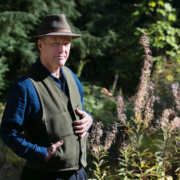Local Poets Read
For me, the fun part is just being at home and writing in my sweatpants. And then being like, “I wrote a poem and I like it.” There’s nothing that compares to that. Nothing. Not The New Yorker, not The New York Times. I feel like that’s something that sometimes gets lost in our culture, where everything’s about building a brand before you even have an established creative process. Please, don’t be a poet unless the number one thing you like to do is write poems. And read poems.
ADA LIMÓN
If you’re a poet looking for more poets to read (or listen to) — here are three offerings by local poets today. All events are free, or for a token donation.
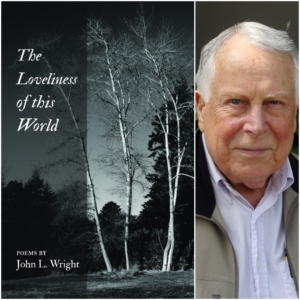 John L. Wright, Thursday, April 29th, 2021 6:30 – 7:30PM EST / 3:30 – 4:30 PST
John L. Wright, Thursday, April 29th, 2021 6:30 – 7:30PM EST / 3:30 – 4:30 PST
The Walt Whitman Birthplace Association is delighted to present a live poetry reading with Physician and Poet John L. Wright. His poetry explores humanity’s relationship and place among the fauna and flora of the natural world. Singer-Songwriter Linda Sussman will perform her original songs live. Join us in celebrating Poetry Month on Zoom! Register for this event here.
Kim Stafford, Sy Hoahwah, and Kathleen Flenniken, April 29, 2021 6:30 – 7:45 pm.
Books in Common NW Series–a reading and conversation with Kim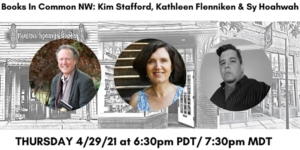 Stafford (Singer Come from Afar, Red Hen Press), Sy Hoahwah (Ancestral Demon,University of New Mexico Press) and Kathleen Flenniken, jointly sponsored by three great Northwest book sellers — Paulina Springs Books (Oregon) , Madison Books (Washington) and Country Bookshelf (Montana). 6:30 – 7:45 pm PDT. Free. Follow the link to find the registration. And notice that this is a series, airing every Thursday.
Stafford (Singer Come from Afar, Red Hen Press), Sy Hoahwah (Ancestral Demon,University of New Mexico Press) and Kathleen Flenniken, jointly sponsored by three great Northwest book sellers — Paulina Springs Books (Oregon) , Madison Books (Washington) and Country Bookshelf (Montana). 6:30 – 7:45 pm PDT. Free. Follow the link to find the registration. And notice that this is a series, airing every Thursday.
And finally, this from Tacoma Public Library: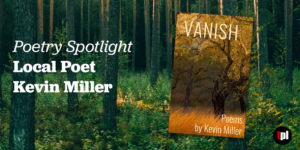
Join local poet Kevin Miller as he reads from his new book, Vanish, the winner of the Wandering Aengus Book Award and Kevin Miller’s fourth book of poetry. WAP Poetry Editor Tina Schumann says of the poems,
“Kevin Miller’s collection Vanish exists in the quiet certitude of lives lived moment to moment, hour by hour and generation to generation. These poems illustrate that it is the varied stuff of this life that makes us whole—farmhouses, sparrows and mackerel, smoke from a cigarette, candles in a window, a question asked over dinner—illuminating each small gesture and ache as they vanish into time, but permeate the living and the land they occupy.”
Kevin has received grants from Artist Trust, Tacoma Arts Commission, and was a member of the Jack Straw Writers Program. He was a Fulbright Teacher in Denmark and taught in the public schools of Washington State for thirty-nine years. He lives in Tacoma.

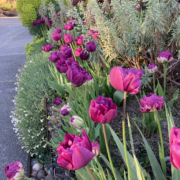
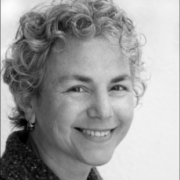
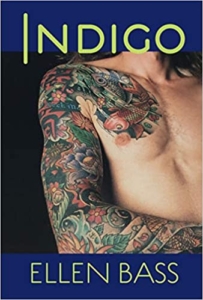 Indigo (Copper Canyon, 2020), makes me want to take the mewling newborn sheaf of poems I’m calling a manuscript and dump them in the shredder. I’ll just start over.
Indigo (Copper Canyon, 2020), makes me want to take the mewling newborn sheaf of poems I’m calling a manuscript and dump them in the shredder. I’ll just start over.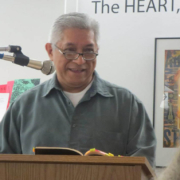
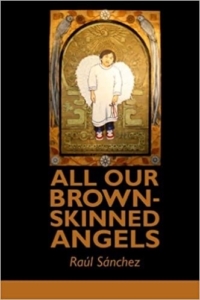 presence, the sort of person who makes you feel visible, as though he is graced by your presence, rather than the other way around. He is the poet laureate of Redmond, Washington, and his book, All Our Brown-Skinned Angels (MoonPath Press, 2012) was nominated for the 2013 Washington State Book Award in Poetry. To learn more about him, visit his website or go to
presence, the sort of person who makes you feel visible, as though he is graced by your presence, rather than the other way around. He is the poet laureate of Redmond, Washington, and his book, All Our Brown-Skinned Angels (MoonPath Press, 2012) was nominated for the 2013 Washington State Book Award in Poetry. To learn more about him, visit his website or go to 